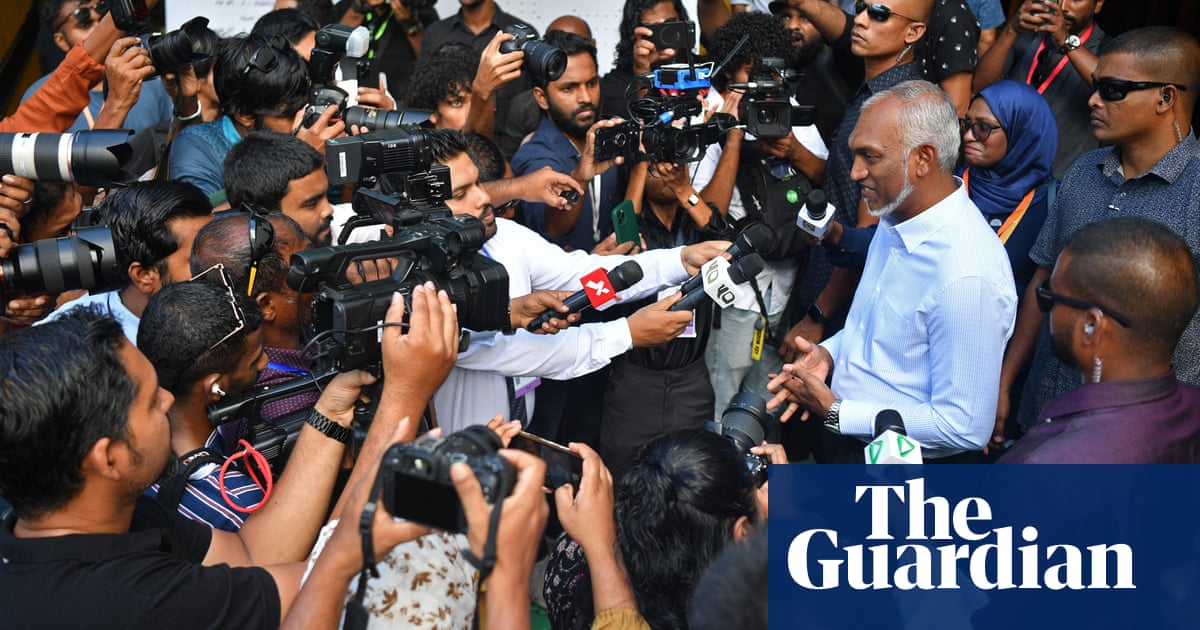Maldives voters have backed President Mohamed Muizzu’s tilt towards China and away from traditional benefactor India, with his party winning control of parliament in an election landslide.
Muizzu’s People’s National Congress (PNC) won 66 of the first 86 seats declared, according to the Elections Commission of Maldives, already more than enough for a super-majority in the 93-member parliament.
The vote was seen as a crucial test for Muizzu’s plan to press ahead with closer economic cooperation with China, including building thousands of apartments on controversially reclaimed land.
The Maldives is known as a top luxury holiday destination thanks to its pristine white beaches and secluded resorts, but in recent years it has also become a geopolitical hotspot in the Indian Ocean, where global east-west shipping lanes pass the archipelago.
Muizzu won last September’s presidential poll as a proxy for pro-China ex-president Abdulla Yameen, freed last week after a court set aside his 11-year jail term for corruption.
This month, as campaigning for the parliamentary elections was in full swing, Muizzu awarded high-profile infrastructure contracts to Chinese state-owned companies.
His administration is also in the process of sending home a garrison of 89 Indian troops who operate reconnaissance aircraft gifted by New Delhi to patrol the Maldives’ vast maritime borders.
The PNC and its allies had only eight seats in the previous parliament, with the lack of a majority stymieing Muizzu after his presidential election victory in September.
The main opposition Maldivian Democratic Party (MDP) – which had previously had a super-majority of its own – was headed for a humiliating defeat with just a dozen seats.
The pro-India MDP had sought to disrupt Muizzu’s efforts to realign Maldivian diplomacy.
Since Muizzu came to power, lawmakers have blocked three of his nominees to the cabinet and refused some of his spending proposals.
The Maldives, a low-lying nation of about 1,192 tiny coral islands scattered 800 kilometres across the equator, is one of the countries most vulnerable to sea level rises caused by global warming.
Muizzu, a former construction minister, has promised he will beat back the waves through ambitious land reclamation and building islands higher, a policy which environmentalists argue could exacerbate flooding risks.







